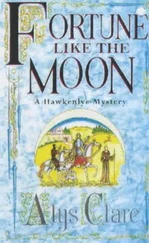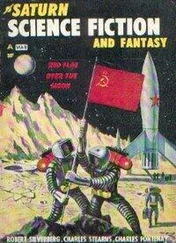Clare Vanderpool - Moon Over Manifest
Здесь есть возможность читать онлайн «Clare Vanderpool - Moon Over Manifest» весь текст электронной книги совершенно бесплатно (целиком полную версию без сокращений). В некоторых случаях можно слушать аудио, скачать через торрент в формате fb2 и присутствует краткое содержание. Год выпуска: 2010, ISBN: 2010, Издательство: Random House Children's Books, Жанр: Старинная литература, на английском языке. Описание произведения, (предисловие) а так же отзывы посетителей доступны на портале библиотеки ЛибКат.
- Название:Moon Over Manifest
- Автор:
- Издательство:Random House Children's Books
- Жанр:
- Год:2010
- ISBN:978-0-375-89616-3
- Рейтинг книги:4 / 5. Голосов: 1
-
Избранное:Добавить в избранное
- Отзывы:
-
Ваша оценка:
- 80
- 1
- 2
- 3
- 4
- 5
Moon Over Manifest: краткое содержание, описание и аннотация
Предлагаем к чтению аннотацию, описание, краткое содержание или предисловие (зависит от того, что написал сам автор книги «Moon Over Manifest»). Если вы не нашли необходимую информацию о книге — напишите в комментариях, мы постараемся отыскать её.
Moon Over Manifest — читать онлайн бесплатно полную книгу (весь текст) целиком
Ниже представлен текст книги, разбитый по страницам. Система сохранения места последней прочитанной страницы, позволяет с удобством читать онлайн бесплатно книгу «Moon Over Manifest», без необходимости каждый раз заново искать на чём Вы остановились. Поставьте закладку, и сможете в любой момент перейти на страницу, на которой закончили чтение.
Интервал:
Закладка:
“Yes, honey,” Hattie Mae said, rescuing me. “We had a fair like that once. It was a long time ago.”
There followed a most painful silence that hovered like hot, moist air before a big rain.
“There was a baking contest, as I recall,” Mr. Koski said. “Mama Santoni got first prize. She was my neighbor and often brought over some bread or pastry for me to sample. She said she needed a man’s opinion.” He smiled at the memory. “I can tell you I was always more than happy to oblige. She was the best baker in town.”
Mrs. Dawkins raised her gloved hand. “Oh, now, that’s where I’ll have to disagree. My dear friend, Mrs. DeVore, God rest her”—she nodded in deference to Ivan—“made the most delicious French cookies. Now, what were they called, Ivan? Those buttery cookies your mother made?”
“Galettes,” he replied with humble pride.
“Yes,” Mrs. Dawkins said, “the most delicate little waffle cookies. They nearly melted in your mouth with a cup of hot tea. Do you remember the lovely teas we had back then?”
And so it went.
Story upon story. Remembrance upon remembrance. It was as if these memories were contained in a painful wound that had been nursed and ignored in equal measure.
I found myself listening with my eyes as well as my ears, noting the slight movements. Mrs. Dawkins folding her lace handkerchief and placing it on her lap just so. And Mr. Cooper, the barber, stroking his mustache the same way Miss Sadie had described his father, Mr. Keufer, doing.
It was interesting piecing together fragments of stories I’d heard from Miss Sadie. Noting what had changed and what had stayed the same. But for some reason, these stories all made me sad and more than a little rankled. It rankled me that everyone in this town had a story to tell. Everyone owned a piece of this town’s history. Yet no one mentioned my daddy. Even when Gideon had been here, he hadn’t really been here. I couldn’t find much of a sign of his ever even having set foot in Manifest, let alone having left an impression.
I knew I could ask this roomful of people about Gideon. But I’d already asked Shady and Hattie Mae. And of course Miss Sadie. I’d gotten nowhere. I’d be hung if I was going to drag it out of them.
It also bothered me that I didn’t have a story. “Telling a story ain’t hard,” Lettie had said. “All you need is a beginning, middle, and end.”
But that was the problem. I was all middle. I’d always been between the last place and the next. How was I supposed to come up with a story for Sister Redempta or even a “Remember when …” to reminisce on with somebody else? But then, I wouldn’t be here when school started anyway, I reminded myself.
Having gotten a little lost in my own pitiful thoughts, I suddenly realized that the room had grown quiet with that kind of Quaker anticipation—waiting for the next Friend to speak. All eyes were on Mrs. Evans, and her eyes were on me. I felt myself get stony cold inside under her gaze.
“Did you know,” she said, quiet but steady, as Hattie Mae took her hand, patting it like a sister, “that my daughter, Margaret, was the president of the 1918 Manifest senior class?”
I didn’t know that Mrs. Evans had a daughter. I’d thought of her only as a statue on a porch. Until then, I’d never heard her speak, and I was surprised by her voice. I’d expected it to be sharp and tinny. But it came out quiet and soft, like velvet. And her words carried something sweet and precious.
“She and Dennis Monahan tied, so they drew straws and my Margaret won.”
What had happened to her daughter, I wondered. But the way she spoke and the way everyone else listened, I knew better than to ask.
Mrs. Evans looked at me, waiting, expecting me to say something back.
I found I wasn’t rankled anymore. “That’s real nice,” I said. And I meant it.
Miss Sadie’s Divining Parlor
JULY 15, 1936
After the Sunday-night service, folks said their goodbyes and thank-yous. Shady sat down heavily in one of the pews. It seemed that the evening had taken a toll on him.
I put my hand on his shoulder. “That was a good service, Shady.”
“It was,” he agreed, but didn’t say more.
“Seems like everyone in this town’s got a story to tell.”
Shady nodded. “I believe you’re right about that. The Lord himself knew the power of a good story. How it can reach out and wrap around a person like a warm blanket.”
I thought it over. He was right. I just wished my daddy’d wrapped me up in that warm blanket instead of leaving me out in the cold.
I wouldn’t ask Shady about Mrs. Evans’s daughter. Not that night, anyway. But I knew how I could settle my mind about it. There was just daylight enough to run the stretch of woods over to the cemetery next to Miss Sadie’s house.
I started at one end and worked my way down a row of graves and then another, reading each name carefully, expecting but hoping not to find Margaret Evans. Then I saw big block letters engraved in a heavy granite stone. EVANS—JOHN, DEVOTED HUSBAND AND FATHER. 1868–1926. I knew that it was Mrs. Evans’s husband, as her name was on the tombstone next to it with her date of birth, and her date of death left blank. But there was no Margaret.
I was relieved. It didn’t solve everything, like why Mrs. Evans spoke the way she did about her daughter, and why Hattie Mae had held her hand, but I could rest easy knowing that there was no Margaret Evans buried in Manifest. She was probably married and living in Joplin or Kansas City with children of her own. Maybe Mrs. Evans just missed her. I hoped so.
It was dark as I turned to go back to Shady’s. Miss Sadie’s wind chimes jangled in the hot breeze. For some reason, I felt my scar and thought of Miss Sadie’s painful, oozing leg. I walked to the welded iron gate and stared down the Path to Perdition, unable to move. Unable to go in and check on Miss Sadie, and unable to turn away. I was paralyzed with the need to tend to her and ignore her in equal measure.
Then, from the shadows on the porch, she spoke to me, beckoning from her darkness to mine.
“It was a dangerous game we played.”
I opened the gate. “What? Faking a town quarantine?”
“No, what we did in addition to that.”
I sat on the top step, my back against the porch rail. “What could be more dangerous than a fake quarantine and a town-sponsored bootlegging operation?”
“Hope …”
Distribution
SEPTEMBER 1, 1918
Word of the miracle elixir had spread well beyond Manifest before the quarantine began. Mrs. Larkin hadn’t been the only one whose fever and cough had improved because of the medicine, although most of the folks whose symptoms had improved were the men who met up with Shady at the old abandoned mine shaft just outside of town to purchase their deep shaft. These were the same men who preferred to drink away their fever and chills. Usually they just woke up with a whopping headache on top of their other ailments, but one after another was rising from a long night of cold sweats and raging fevers feeling like he had come through a rough storm.
If it had been left to the men, the miracle elixir would probably have gone unnoticed. They would have chalked it up as just one of the well-known perks of a few stiff drinks. And since Velma T.’s elixir was something relegated largely to newspaper advertisements and jokes, people would have been none the wiser. The wives and mothers were the ones who found the brown bottles stashed away under pillow and bed. The women, who had been nursing these men in their infirmity, wondered how they’d suddenly improved while others lingered in the sickness.
Читать дальшеИнтервал:
Закладка:
Похожие книги на «Moon Over Manifest»
Представляем Вашему вниманию похожие книги на «Moon Over Manifest» списком для выбора. Мы отобрали схожую по названию и смыслу литературу в надежде предоставить читателям больше вариантов отыскать новые, интересные, ещё непрочитанные произведения.
Обсуждение, отзывы о книге «Moon Over Manifest» и просто собственные мнения читателей. Оставьте ваши комментарии, напишите, что Вы думаете о произведении, его смысле или главных героях. Укажите что конкретно понравилось, а что нет, и почему Вы так считаете.












